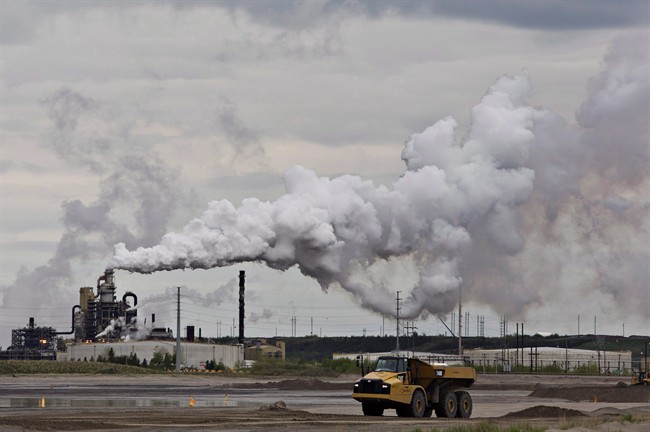As Prime Minister Justin Trudeau sits down with premiers and territorial leaders from across the country, Canadians are not overly optimistic that the group will be able to set new greenhouse gas reduction targets – and then stick to them.

A new survey from the Angus Reid Institute shows that while the public is strongly (70 per cent) in favour of the international agreement on climate change reached in Paris last December, only about half (56 per cent) of Canadians think the first ministers will agree on new emissions targets within the next year. Only 44 per cent believe Canada will be able to meet whatever goals are established, and just 6 per cent consider it “very likely.”
“Given the backdrop of what’s going on in Vancouver today where different premiers are coming out with different perspectives, it’s not tremendously surprising,” said Shachi Kurl, executive director of the Angus Reid Institute.
“There was an acknowledgement going in – at all levels and on all sides – that no one is going to come out of these rounds of meetings saying ‘We have the answer.'”
Canada is currently committed to reducing greenhouse gas emissions by 30 per cent from 2005 levels by 2030, a Conservative target that new Environment Minister Catherine McKenna has deemed a ‘floor’ for the Liberals, not a ceiling. The federal government has repeatedly failed to meet targets for greenhouse gas reduction set over the past two decades.
“People have seen this movie before,” said Kurl.
The Trudeau government, however, may be prepared to take drastic steps to push the country into a carbon-reduced economy. Earlier this week, the CBC — citing senior Liberal sources — reported that Ottawa is open to imposing a nation-wide carbon tax, with or without the agreement of all provinces and territories.
The most vocal opponent of carbon pricing has been Saskatchewan Premier Brad Wall, who has argued that it could further destabilize the economies of provinces already reeling from job losses in the energy sector.
READ MORE: Push-back on national carbon price gains steam
The first ministers could emerge from their meeting in Vancouver on Thursday with a plan to create four working groups to study Canada’s climate policy, one of which will be dedicated to looking into pan-Canadian carbon pricing. Several provinces already have a carbon tax or pricing scheme in place, but the cost per tonne varies between jurisdictions.
Other key findings from the Angus Reid Institute include:
- Two-in-three Canadians (64 per cent) support the extension and conversion of the Energy East pipeline. Support is lowest, about 48 per cent, in Quebec.
- Canadians lean toward giving the federal government the final say on pipeline projects (54 per cent say they agree with this) but perspectives vary significantly by region
The Angus Reid Institute online surveys were carried out between February 2 – 5 and on February 26, 2016, among representative randomized samples of 1,507 and 1,508 Canadian adults, respectively, who are members of the Angus Reid Forum. Typically, probability samples of this size would carry a margin of error of +/- 2.5 percentage points, 19 times out of 20.
- Alberta to overhaul municipal rules to include sweeping new powers, municipal political parties
- Norad looking to NATO to help detect threats over the Arctic, chief says
- Grocery code: How Ottawa has tried to get Loblaw, Walmart on board
- Military judges don’t have divided loyalties, Canada’s top court rules




Comments